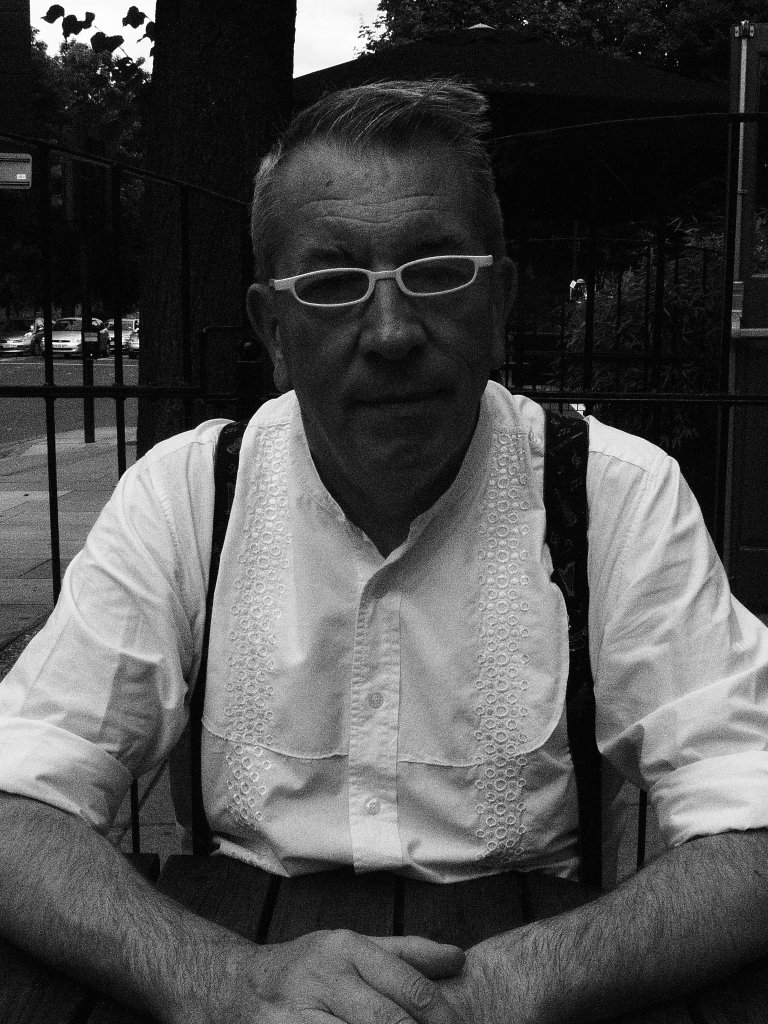The Songster and the Horses—a Hollywood Elegy with Cocaine—Fiction by Nick Sweeney
Bass-fiddler-about-town Edvald Ebert found the place at a crossroads off Glendale, a mansion going for a song.
“Which song?” songster-at-large Stephen thought out loud. He forgot that Ebert always answered rhetorical questions. Didn’t Americans know you weren’t supposed to do that?
Ebert: “If I can’t think of one, you can…” Agitated his elegant fiddling fingers.
“What?”
“Scribe one.” Ebert had thought carefully about the right word and found the wrong one. “With your little quill.” The mockery of it—Ebert had admired Stephen’s little quill often enough. Appropriate, however. With Vaudeville dead—or at least stuck to its sticky ould boards in once-great cities and podunk towns held together only by their dirt—Angel City was set to be the new home of sound as well as vision.
Stephen could never remember the finer details of the rental, or what the connection was or…anything else. Didn’t matter; he was moving in anyhow. Nothing about it was important once Stephen was sleeping in its upstairs turret or kicking around its empty salons, the sun coloring its white walls as it saw fit.
The ould brain fog suffered no colors—always white, it was—and accompanied Stephen every place, inside, outside, in conversation, in the silences that settled on him like the gentle snow of Galway that whited out the green world in a matter of minutes.
Stephen kept seeing a horse out in the road, the morning it collapsed and brought down its carted driver, cursing as his goods, lovingly canned and jarred, cascaded around him. Sundry tomatoes in the cracks in the pavement forever like smears of blood marking some centuries-old massacre of natives. That equine beast cared not about being liberated either from the Wild West itself or the version of it Laemmie and Baumann were brewing at Universal—open now, loud and proud and promising the future with the aid of showgirl cowgirls tired of the West. Stephen would pay good money or bad to see a Jewish western. Set it in Vienna, o that was the thing, blow those tumbleweeds out of the picture, let the absurd Stetson guys chase them, their chaps flapping, spurs tinkling like those falling jars of produce.
Couldn’t happen every day. The street outside would be full of dead steeds and cussing carters, food in perpetual motion. Stephen saw it every day. He decided not to mind.
No horse now, a car engine thrumming.
“Gig.” Ebert chucked Stephen the key. He edged past him, shrugging into a big box jacket more a duster coat prop from Universal, his watch chain, billfold, silk scarf, car rug, stubby horsehair bow, stained sheets of popular songs, Stephen’s among them—probably—flying around him and engulfing him in a vacuum that propelled him toward the door. Ebert’s man Arnold lugging a pigskin suitcase then, then back for the infernal bull-fiddle, of course, monstrous thing in a jacket that looked more expertly made than Ebert’s and Stephen’s own. Work was taking him away.
“Where?”
“Miami, I think.”
He thought.
Ebert left his Mongolian horse-head cello behind. Who would want to hear a thing like that? Its affable but intrusive eyes watched Stephen. He placed Ebert’s fancy shades over them—that settled its inquisitive hash. This was America. It was not Dublin with its twitching curtains and ever-seeing biddies and bizzies.
“Miami?” Stephen barely knew where Miami was. Ebert probably had as little idea. He would turn out to be a grand fellow to share with, Stephen predicted: rarely showing his flat but handsome Saxon face, restless, out before he was properly back in each time.
“I will miss you,” he said, all the same. Or did he say kiss you? Well, he would do both. Arnold raised an eyebrow, took his leave, not quite inscrutable.
Stephen tinkled the piano—grand so, only out of tune in the highest octave. He scattered words, unconscious reminder of the bad poet he had been. He dispatched the results off to all corners of the environs: Beverly hills, Laurel Canyon, Hollywood—of course—and noted the paperwork that came back, songs for this and that destination, places Stephen could not bring himself to care about. He consigned them to M’sieur Lucifer Lemond, as his agent liked to be called, though in fact he was about as French as Stephen’s green Hibernian buttocks—make that beggar work for his twelve percent—and forgot them all. That was exactly what his despicable throwaway music deserved, and no more.
That man of Ebert’s Arnold brought Stephen oblivion in small packets and vials, making his days and nights difficult to punctuate. There were girls, but none of them were boyish Fiat Mackenzie with her Polaire hair—he had really been mad in love with that scandalously-bobbed creature now making a name in the movies. He was sometimes mistaken: was it love at all, or just the absence of part of a dream gone bad? But the dream had captured the truth too, meanly wouldn’t let it go: love in the first degree, a curse worthy of an upsided carter over a dead horse.
Fiat was on billboards out there. He was happy for her, except that he wasn’t…He dared not look at those dashed billboards.
The girls were not Fiat Mackenzie, and were not going to be with their bulging chests and yards of Gibson Girl hair. He dallied and danced with those stray girls anyhow, ate only red peppers, ingested only milk. He threw himself into his work. And as advised by Ebert, he scribed. I hate these songs, he woke each morning and said to his mirror, to Arnold—possibly out loud, though Arnold had a way of studying him critically without moving a facial muscle—to the absent Ebert, to…girls.
“Newspapers,” he commanded Arnold. He was in his mid-morning trance when they came, left on the hallway table with more peppers, more milk, some choice thing only certain doctors ordered, and two new syringes.
Going to be a war, he realised, back in the grown-old continent, Europe. The Balkans exploding. The whole place would go up, only dear ould Ireland intact. Then who would want to hear Two Way Tilly at the Top? Or The Hooray Girls? Who would want to sing along to The Waldorf Wows of Winter? Stephen had forgotten those songs already, but they were out there now, slow poison; it was too late. Perhaps the world being so full of enraging music was what would help drive it toward war?
It would never stop yawing around him, that New World in which he was a speck. It was the future, right enough. Europe was a sleepy village in comparison, its troubles mere grumbles. America would barely stop moving long enough for the troubles to be identified, let alone addressed.
It was a young man’s country. Stephen, at twenty-nine, felt on the cusp of old age in America. A portrait of the dreadful Dublin poet he had once been came back to him, bidden by some powder-driven demon in his brain, he supposed—bad cess to him. His own fault, he sometimes saw. Or Chatterton’s.
Chatterton knew the secret of eternal youth. And there they were forever young: Stephen and Thomas—Tommy, sleek as a racehorse, Thomas Equinus, if you will—out on a glorious Dublin drunk, not needing to talk about poetry all night, just living it, and needing to sleep off the ten-guinea hangover together in some dreadful bed and churn out the genial outchurnings. An hour, two, ink on paper, drying, forgotten, almost, ready for posterity to ponder it and to hell with it, and then back to the Brazen Head for the hair of the horse. Thomas—little Tommo, the beauty – and Stephen.
Was that really only a dream, and a daydream, at that? Rimbaud knew the secret, too. So close, in time, and place; Stephen always ached a little to know that he and Rimbaud had never met, though he was a shit, by all accounts. But he knew to do the poetry, leave the scribblings behind for eternity and its dwellers, then away with you to do a man’s job among tribesmen, and women, and animals, under the burning sun that never touched a backwater like Dublin. That was the grand tour, eh, Arthur? No glorious drunking with Rimbaud, Stephen suspected, only an evening of the poet’s hair increasingly spikier with the piss he refused to wash from his hands, his cravat grubbier, his expression meaner, more scathing, as he looked at Stephen and decided, very suddenly, that he wanted to stab him just in case he might be more talented, and, worse, might be seen to be so. Well, feck him. In America, they would have stabbed him back.
Outside, a cry, a falling horse, knowing the automobile was on its tail and suitably mortified. It was morning. Inside, mysteriously free of his master’s sunglasses, the cello-trapped horse scrutinized Stephen, looked over his cheap melodies and trite rhymes, and he knew—a onetime poet just knew—let out a great horse-laugh.
~~~

Nick Sweeney’s work reflects his interest in/obsession with Byzantium, bike racing, and Eastern Europe and its people, places, languages, and cultures. He is a freelance writer and musician, and lives on the English coast. More than any sane person could possibly want to know about him can be found at http://www.nicksweeneywriting.com
